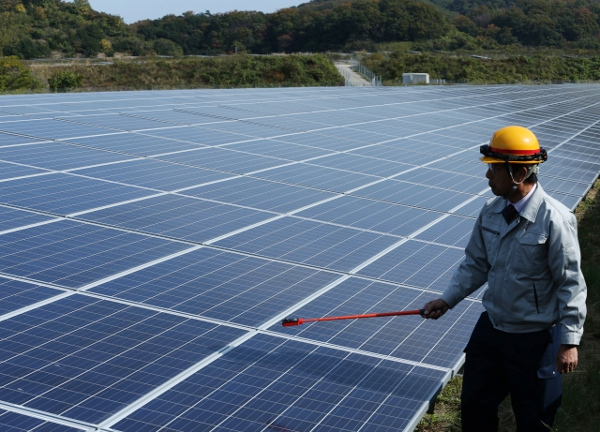India has achieved its solar power target four-years ahead of its schedule, as a part of its climate change mitigation strategy, a senior official of the Central government’s Department of Science and Technology (DST), said here on Tuesday.
The target of installing 20 GW of solar power by 2022 was achieved four years ahead of schedule in January 2018, Adviser and Head of Climate Change Programme of the Department of Science and Technology, Dr Akhilesh Gupta said.
“India has now set a new target of achieving 100 GW of solar power by 2022, he told PTI on Tuesday. India was one of the least contributors to global warming that is inducing climate change but it was feared to be one of the worst affected countries, he claimed. “It is a global trend vis-a-vis climate change that least contributors are the worst affected, he added.
Gupta further pointed out that rising temperature in the Himalayan region was a big challenge facing the country due to the global phenomenon of climate change.
He said Himalayan states of the country including those from Northeast especially Assam and Mizoram were staring at harsh days ahead.
Assam is highly vulnerable because of least area under irrigation, least forest area available per 1,000 rural households, least number of farmers taking loans, lowest per capita income, low percentage area covered under crop insurance and low MGNREGA participation”, he said.
Gupta was here to deliver a lecture on “Climate change and India’s sustainable development pathway,” on the occasion of 30th Foundation Day of biodiversity conservation and research organisations Aaranyak on Monday.
The senior DST scientist also gave a presentation on India’s preparedness and national action plan vis-a-vis climate change.
Gupta, in his lecture, also pointed that major initiatives have been taken by the Centre to mitigate the problems which has led to decrease in emission intensity of Indias GDP by 12 per cent between 2005 and 2010.
India is one of the countries with the largest production of energy from renewable sources, accounting for 34.6 percent of the total installed power capacity while large hydro installed capacity is 45 GW now, contributing to 13 per cent of the total power capacity.
Wind power capacity is 36,625 MW, making India the fourth-largest wind power producer in the world.
Four of the top seven largest solar parks worldwide are in India including the second largest solar park in the world at Kurnool, Andhra Pradesh, with a capacity of 1000 MW.
The world’s largest solar power plant – Bhadla Solar Park – is being constructed in Rajasthan with a capacity of 2,255 MW and is expected to be completed shortly, he said.
India is promoting Nuclear power as a safe, environmentally benign and economically viable source and with a 2.2 per cent share in current installed capacity, the country aims to achieve 63 GW installed capacity by the year 2032, Gupta added.
Source: FP
Image Courtesy: Bloomberg
You may also like
-
Trade Connect E-platform For Exports Is Single Window, Fast, Accessible And Transformational: Shri Piyush Goyal
-
Dot Simplifies Approval Processes For Telecom Licenses And Wireless Equipment
-
Coal Production and Supply Trends on Positive Trajectory
-
Union Minister To Release Booklets On Promotion Of Indigenous Species & Conservation Of States Fishes
-
2nd India-Japan Finance Dialogue held in Tokyo on 6th September, 2024
